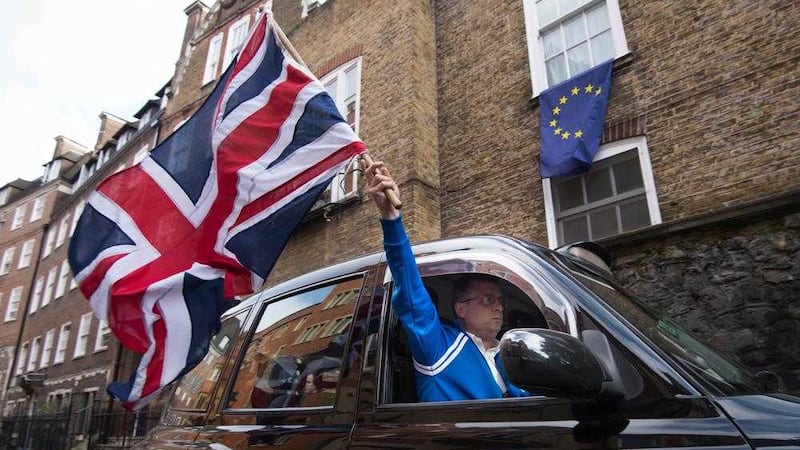It is a sign of desperation when a columnist reaches into history for inspiration. And desperate I am. Like many readers, I voted Remain in that noxious referendum.
In Northern Ireland, we are sensitised to the fact that our membership of the British family is palatable only because it is subsumed within something bigger. The European Union was the key to peace in Ireland, and it took a man of vision like John Hume to realise it.
His search for peace was the single biggest act of statesmanship in twentieth century Britain or Ireland that I can think of. The Nobel Peace Prize was insufficient recognition.
Hume is a man who invested all his being in the power of politics to effect change, and he is a parliamentarian to his core. (It is remarkable how many Irishmen can claim to be among the finest performers in the so-called Mother of Parliaments: Burke, Parnell and Hume dominated in the eighteenth, nineteenth and twentieth centuries respectively.)
I don’t intend here to rehearse once more the pros and cons of continued membership of the EU, or to dwell on Northern Ireland’s chances of remaining within it. Arlene Foster is no Nicola Sturgeon.
I am more interested in what the vote and its aftermath, and the collapse of ‘normal’ politics, says about the structures of governance so essential to maintaining peace, security and stability.
The result is further evidence of the terminal decline of the democratic experiment. Winston Churchill, speaking in 1947, made one of his most celebrated observations: “No one pretends that democracy is perfect or all-wise. Indeed it has been said that democracy is the worst form of government except for all those other forms that have been tried from time to time.”
There are many weak links in democracy. It is a system that depends on human beings behaving well, and putting the interests of others ahead of their own. It asks a lot of those who participate in it, the theory being that enough of us are wise enough to counter those who are not. That cannot be guaranteed.
The people are sovereign, but experience tells us they cannot be trusted completely. Many a despot has ridden to power on the back of the mob. Hitler used the ballot box to get his grip on power, and then destroyed it.
We know we need to be saved from ourselves, and for this reason the most successful political systems build in checks and balances to protect themselves from populism and its negative effects.
And here we come back to one of those great parliamentarians. Edmund Burke, educated in that crucible of Irish learning Trinity College Dublin, was one of the greatest political thinkers in these islands, and a parliamentarian par excellence.
He championed the cause of American independence, Catholic Emancipation and the shift of power and authority from the monarchy to parliament. But Burke had his concerns about the limitations of the democratic process. He knew that the power of the crowd had to be restrained.
There is within us all the DNA of the lynch mob.
For Burke, the protection came from the development of a representative parliamentary democracy.
He wanted Members of Parliament to understand the needs and desires of their constituents, but to act in their best interests rather than slavishly following their demands.
He set this out clearly when he said: “Your representative owes you not his industry only, but his judgment; and he betrays, instead of serving you, if he sacrifices it to your opinion.
“Parliament is not a congress of ambassadors from different and hostile interests; which interests each must maintain, as an agent and advocate, against other agents and advocates; but parliament is a deliberative assembly of one nation, with one interest, that of the whole, where not local purposes, not local prejudices, ought to guide, but the general good, resulting from the general reason of the whole.”
This speech, to the electorate in Bristol in 1774, forms the basis of one-nation conservatism, and it set the tone for parliamentary democracy in Britain and Ireland for the next 250 years.
The referendum was an abdication of the principles Burke set out. As a result (and this is not because I am a sore loser, which I am) politics has let us down by pandering to the mob.
If we continue to crowd-source decision making, the veneer of democracy will barely cover the nakedness of an elective dictatorship, and we will all lose out.









